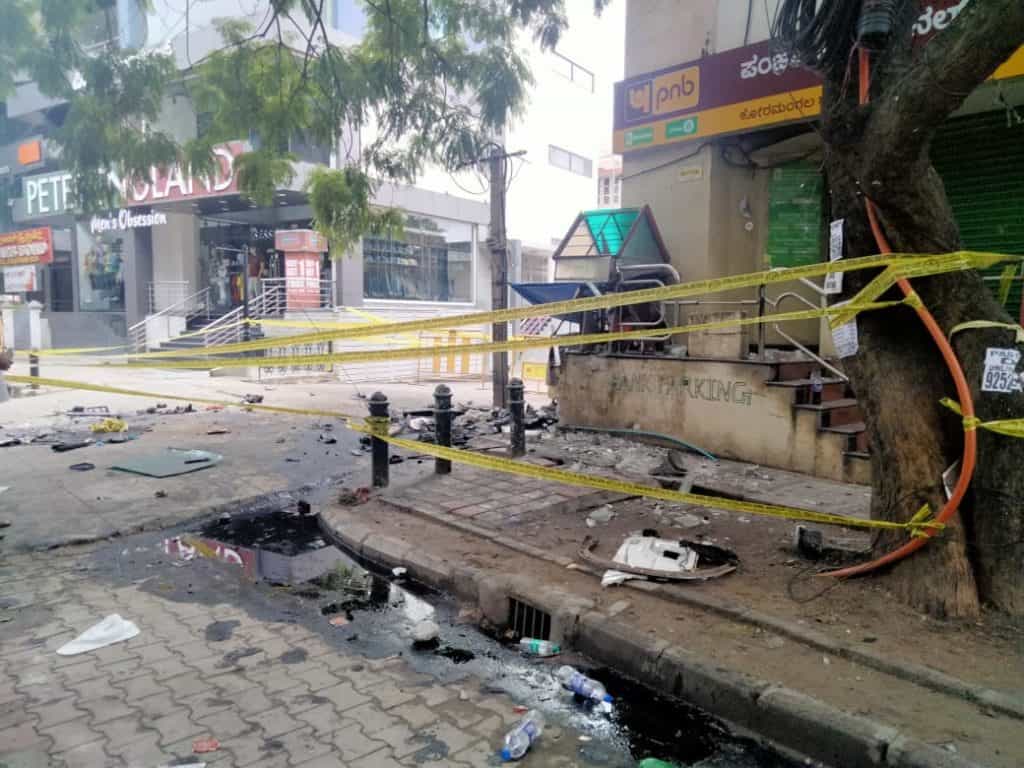The recent weeks have been difficult for Bengalureans. Bad roads and potholes we were already used to, especially around monsoon; but this year, the situation got worse. Garbage seems to be piling up once again. The biggest shock came when several buildings collapsed, just like that. Thankfully there is no loss of life, but it exposed the cracks in our system and made many of us wonder if all the unchecked growth is coming back to haunt us.
While most citizens are outraged, very few express frustration publicly. A small subset of them want to ‘do something’ to ‘fix things’. It is our city and our pride, and we want it to do well and maintain the enviable track record of being a garden city and the land of opportunities for all.

What can we do though? As citizens, we elect our government and we expect them to be custodians of all things public. What if they don’t do their job? What if the party politics and personal advancement becomes more important to them than safety and wellbeing of the very citizens that put them in a position of power? Do we just wait for the next election?
There are a few options : putting pressure on elected representatives by petitioning and mobilising public opinion through campaigns and protests, and going to court. All of these can be done and are being done. But the option that needs more attention, in my opinion, is: participation in ward committees which present an opportunity for sustainable and constructive collaboration.
Read more: Become a BBMP ward committee member to help your ward
Ward committees are a constitutionally created mechanism for citizens to engage in local governance. All of us live in a ward. Every ward has a set of officials – the engineer, health inspector, those that provide water, electricity, enforce traffic rules, and so on. The ward committee is a small forum where we, the citizens, can sit in the same room as all the officials mentioned above. In Bengaluru, every ward committee is expected to meet twice a month, first and third Saturdays in the local ward office. The time and date are fixed so that it becomes a habit and people don’t need to wonder when and where the meeting is.
The agenda of the meeting is all things that pertain to the ward. What civic works are being undertaken currently? When can they fix a particular road or footpath? How are funds being utilised? What are the needs of the local community? How can we prioritise the needs of different areas within the ward? One of the biggest issues we all complain about, is the lack of coordination between different agencies; they seem to enjoy digging our roads one after the other, instead of planning ahead. Well, the ward committee can help fix that too, since all departments are expected to attend; regardless of who their boss is, they are all accountable to the citizens of the ward.
It is obvious that the problems our city faces cannot be fixed centrally. For example, nobody can count the number of potholes in the city, but it is fairly reasonable to get a sense of potholes in a ward which is a small geographical area. The citizens of the ward and the engineer can come together in the ward committee and find ways to fix things, using the budget already allocated to the ward (Rs 20 lakh this year for each ward committee). Same for footpaths – Rs 20 lakh available for repairs based on ward committee decisions.
Read more: Loopholes that can render Bengaluru’s Ward Committees useless
It sounds great on paper, but the reality is that ward committees are still work in progress. As they say, a baby needs to crawl before it can walk and run, and we can say ward committees are in the crawling phase. There are several reasons for this, but the biggest, in my opinion, is there isn’t enough public participation in these forums. Unfortunately, not many citizens are aware of ward committees even today, three years after they came into being.
There are a lot of myths and misconceptions about who can attend, what can be discussed and not, political interferences. The people that run the ward committees, like the corporators (nodal officers now, in the absence of BBMP Council) have not been trained in the process, funding guidelines, etc. So that is another hindrance.
We are organising a workshop on ward committees to bring together citizens from different wards, who have been working tirelessly to engage with their ward committees – some of whom met with success, others with frustration. The idea is to learn from each other and find ways to make things functional. We are hoping to get some senior officials from BBMP also to participate – to listen and share their perspective.
If you think there is a solid case for ward committees being a bridge between citizens and government, and want to know more, join us. And do share with friends and neighbors.
When: Saturday, 13th November 2021, 10 am*
Virtual Meeting on Zoom : http://zoom.us/j/86998260084
This event is hosted by Janaagraha and supported by several civic groups of Bengaluru
[*Addendum: This article originally mentioned that the workshop would be held on October 30. But the event was postponed, and the article has been updated with the new date.]